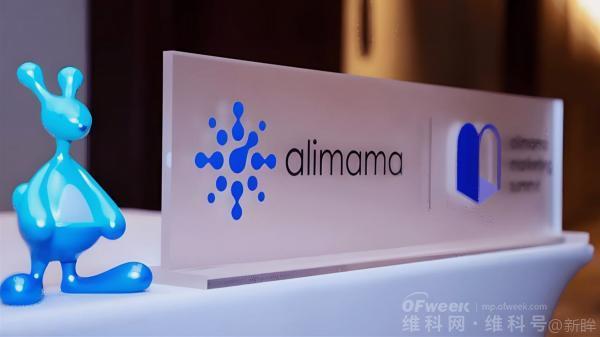AliMama is a mirror reflecting the evolution of e-commerce in China
![]() 10/14 2024
10/14 2024
![]() 583
583

Author: Lu Yao
The evolution trajectory of China's e-commerce industry is essentially the dual effect of technological innovation and changes in market demand. However, it is often not the model transformation of a particular online shopping platform or the upgrading of products in a niche market that fully demonstrates these two overlapping waves. Rather, it is the advertising industry that provides the most dynamic portrayal.
If you opened an online store on Taobao twenty years ago, to quickly promote your products, you could purchase banner ads or text link ads in prominent positions on the Taobao website, which directly linked to your store or product pages. Since competition was not fierce at that time, ad spaces based on bidding rankings were cheap and effective.
A few years later, Taobao introduced Taobao Train for merchants, a pay-per-click (PPC) performance marketing tool that merchants could use to quickly increase product exposure by bidding on keywords to make their products appear higher in search results.
Simultaneously, the platform launched Taobao Affiliate Marketing, a cost-per-sale (CPS) model that attracted numerous small and medium-sized websites to participate. This approach is similar to current KOL product linking and live streaming sales, where merchants enroll their products in the affiliate program, and affiliates promote them. If a sale is made, the merchant pays a commission to the affiliate.
At this point, it can be said that the advertising tools for China's Internet e-commerce industry have begun to mature.
Behind these developments was AliMama, the most representative Internet advertising company at the time. In its second year of operation, 2008, Alibaba claimed that Taobao achieved break-even that month through advertising, and AliMama once generated over 60% of the group's revenue, earning it the nickname of the "money bag."
The most profitable aspect of e-commerce platforms is not e-commerce itself but advertising. In the era of search-driven marketing, traditional shelf e-commerce represented by Taobao and Tmall relied heavily on bidding ranking ads and external traffic to generate substantial revenue.
During this period, merchants' primary concern was to make their products visible to more people, have more precise keywords, and achieve higher conversion rates. The advertising model at that time was closest to the commercial principle of equivalent exchange: as long as enough was invested, there would be short-term returns.
Upgrades in advertising models and technology were often not driven by merchant demand.
As the industry grew rapidly, the so-called Internet traffic dividend gradually diminished. To maintain ecological balance and achieve sustained growth, platforms needed to differentiate their marketing and promotion strategies for different sellers and products.
In this process, AliMama's merchant strategies became further refined. One direct manifestation was the diversification of AliMama's product matrix over the following decade, including Taobao Train, Taobao Affiliate Marketing, Diamond Display, TANX, and Damo Plate (Alibaba's data management platform).
Among these, Diamond Display targets mature merchants who need rapid growth, operational capabilities, and sufficient budgets, using CPM (cost per mille, or cost per thousand impressions) pricing. TANX helps merchants precisely target users based on their browsing habits, while Damo Plate serves as a user data management tool for merchants, driven by algorithms for audience analysis and targeted delivery.
The trend of technology-driven, precision marketing has pushed advertising platforms towards transforming into "digital marketing platforms." By dissecting merchants' advertising needs and mining user value, AliMama has innovated tools based on algorithmic technology, going beyond traditional bidding ranking.
As mobile apps became mainstream and social content platforms emerged, the demand for high-quality content increased, while monetization channels for self-media content remained limited.
In 2017, AliMama promoted content-based shopping guides, integrating with various super apps represented by Toutiao and live streaming platforms. This shifted the traditional approach of solely using links and ads to redirect traffic towards social, news, and live video streaming scenarios. The logic behind this was to transform Taobao from a single shopping guide platform into a new model focused on content consumption and brand building.
Previously, we primarily found the products we wanted through search, a "people find products" approach. Now, platforms use algorithms to achieve personalized "products find people." This shift reflects not only technological progress but also deeper changes in consumer habits. Merchants no longer solely pursue sales conversions but focus on precisely targeting audiences, conveying brand stories, and building emotional connections with consumers.
This transformation continues today and is far from over, but to some extent, it has also exposed the shortcomings and anxieties of Taobao-series e-commerce platforms.
The rise of social and live streaming e-commerce platforms like Douyin and Xiaohongshu has continuously eroded Taobao-series' market share. According to Goldman Sachs, Taobao-series' market share plummeted from 66% in 2019 to around 45% in 2023 within just four years.
Our previous analysis showed that Taobao-series' defensive stance against new forces like interest-based e-commerce was not due to a "late move." In fact, Alibaba acted earlier than we might have imagined in areas like social media, live streaming, and content.
The reason for not taking the lead is complex, influenced not only by internal strategy and execution swings but also by the platform's ecosystem, rooted in the marketplace. Both platform rules and consumer perceptions are difficult to change for a long-established company.
Looking at AliMama's performance, its revenue grew from 134 billion yuan in 2018 to 316.4 billion yuan in 2021, marking its most significant growth period and contributing nearly 40% of Alibaba's total revenue. However, in 2022, the situation began to change: first-half revenue was only 135.684 billion yuan, a year-on-year decrease of 6%.
At Alibaba's m-Summit in 2021, AliMama announced a brand upgrade and proposed a "digital and intelligent business strategy." This strategic shift meant that AliMama would no longer be limited to a marketing perspective or solely pursue short-term GMV but instead leverage technology to focus on merchants' entire business chain.
Interestingly, similar strategic goals and brand upgrade plans had already been announced and implemented by Douyin's digital marketing service platform, Ocean Engine, the previous year.
Revenue declines and strategic adjustments correspond to the weakness in the advertising industry during the pandemic, when many brands and merchants reduced their marketing budgets. At the same time, short video and live streaming platforms saw rapid growth in traffic for product sales, leading to impressive ROI, and advertisers naturally voted with their feet.
"Algorithm + AI" has been the main theme of AliMama's updates in recent years. From self-developed MLR algorithms to the launch of the Unbounded Version of Wanxiantai and Bailing last year, the overall marketing strategy focuses on two aspects: lowering the traffic threshold and achieving full-domain, full-site coverage, such as the Wanxiang Lab for generating product images and the recently launched Full-Site Promotion and Super Short Video features.
It is evident that the marketing strategy of "creating quality content, shortening the purchase path, and achieving full-domain growth" has become a consensus among all marketing platforms.
For example, in addition to AliMama, Ocean Engine advocates leveraging multiple channels like live streaming, short videos, and shelf e-commerce to acquire and convert full-domain traffic. It provides a series of tools, such as Douyin's e-commerce live stream boot screen, seeding pass, and content boost, to shorten the path from discovery to purchase and improve conversion efficiency.
However, in reality, merchants' confusion has not diminished. AliMama's product matrix has rapidly expanded in the past two years, encompassing traditional search and Taobao Affiliate Marketing, as well as one-stop solutions, information feeds, live streaming interactions, and more. Yet, the emergence of various new formats like search, live streaming, and short videos has also complicated marketing efforts.
With the increase in sections on Taobao's pages, exposure entry points have become fragmented, making it harder for merchants to choose and decide. Learning new tools takes time and practice to verify their effectiveness, and some merchants, especially small and medium-sized ones with limited resources, are hesitant due to the high cost of trial and error.
As market competition intensifies, this year's Singles' Day shopping festival feels particularly long. E-commerce platforms have introduced preferential policies, with Tmall investing tens of billions of yuan and JD.com providing hundreds of billions of traffic support to reduce operating costs. To boost merchant traffic, WeChat and Taobao have interconnected, and platforms have even begun to tear down walls between them.
AliMama is doing the same. A typical example is the launch of a billion-yuan price subsidy campaign called "Heaven-Sent Fortune" within the platform this year. Investment in Taobao Affiliate Marketing has been more aggressive, aiming to attract new customers and increase transaction volume through direct subsidies from affiliates. Merchant programs like "Super U-Pick" offer affiliate benefits while waiving service fees.
As the head of Taobao Affiliate Marketing, Cheng Yuan, put it, this may be the most competitive year for attracting consumers.
To further optimize merchants' business environment and enhance the platform's commercial value, Taobao has made significant adjustments to its product search and ranking mechanisms: weakening the absolute low-price strategy and instead allocating search weight based on GMV. This means that price is no longer the sole factor determining search rankings. Instead, products with high sales and consumer popularity are more likely to appear prominently in search results.
Accurately targeting audiences, creating high-quality content, and selecting appropriate keywords are the primary issues that AliMama's optimized technology aims to address. In the face of declining traffic on Taobao-series platforms, more straightforward subsidy-based tactics have also been frequently introduced.
Marketing platforms hope to convince merchants that there are still stable and predictable business opportunities through the most persuasive means. As AliMama continues to strengthen its support for Taobao-series e-commerce, Taobao and Tmall find themselves at a crucial juncture.







